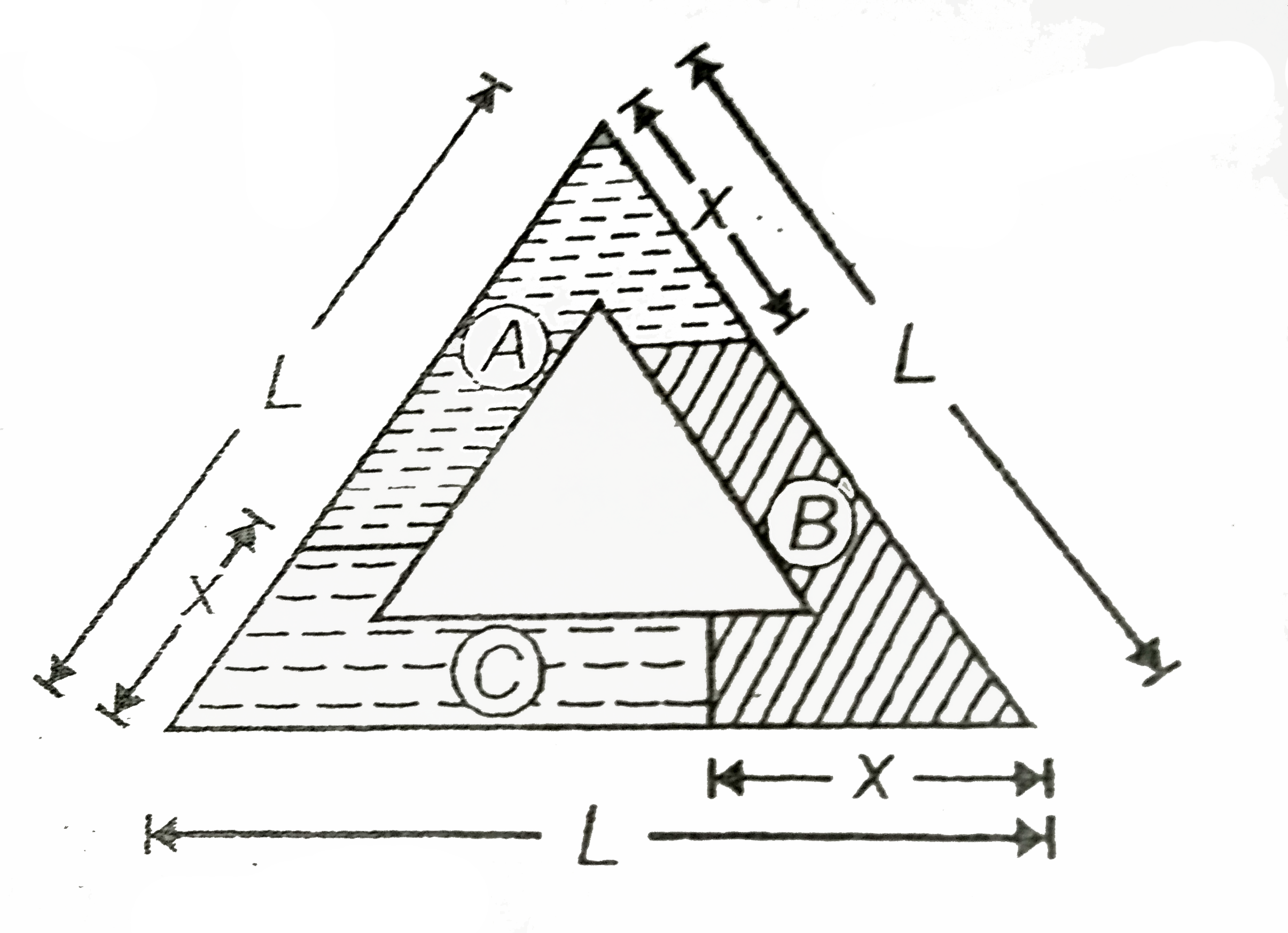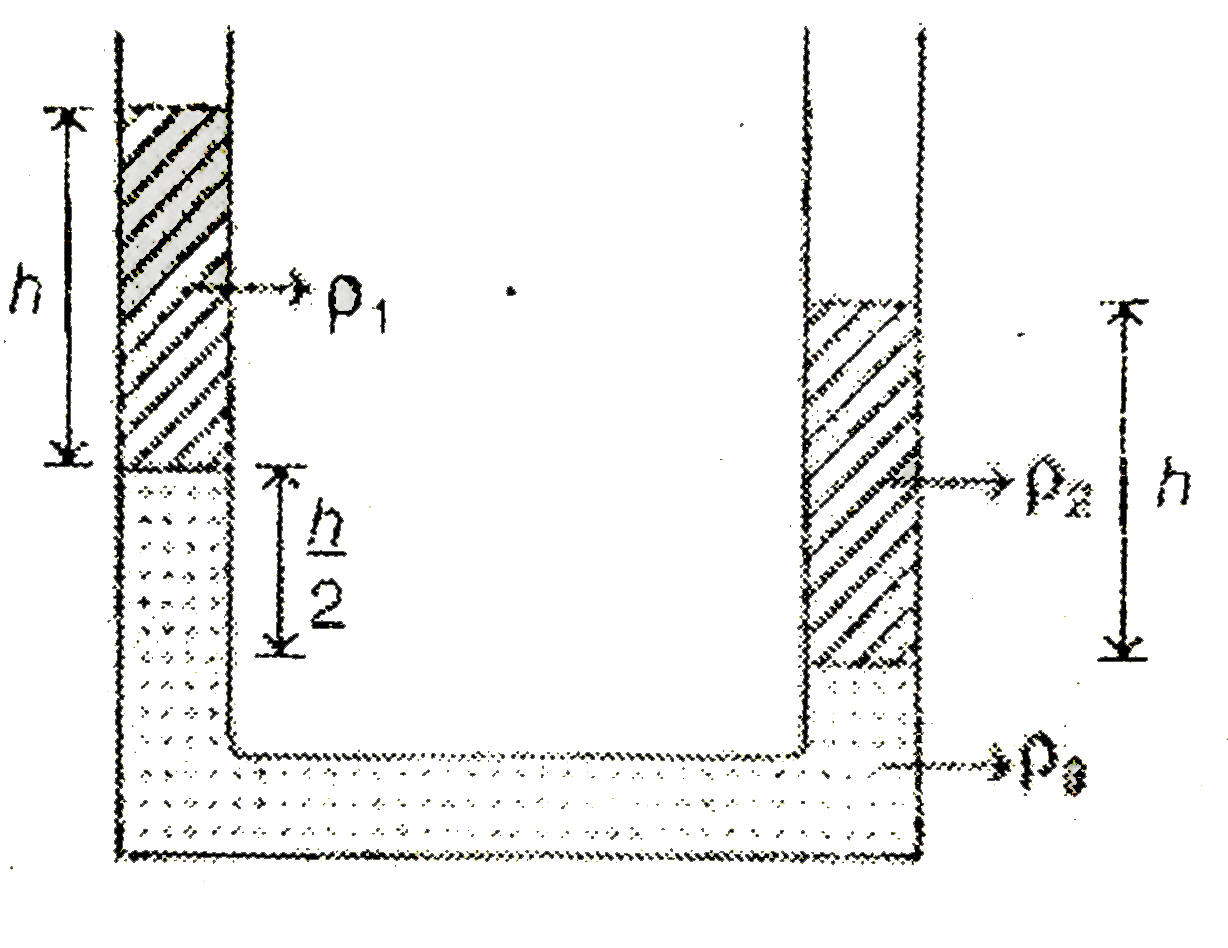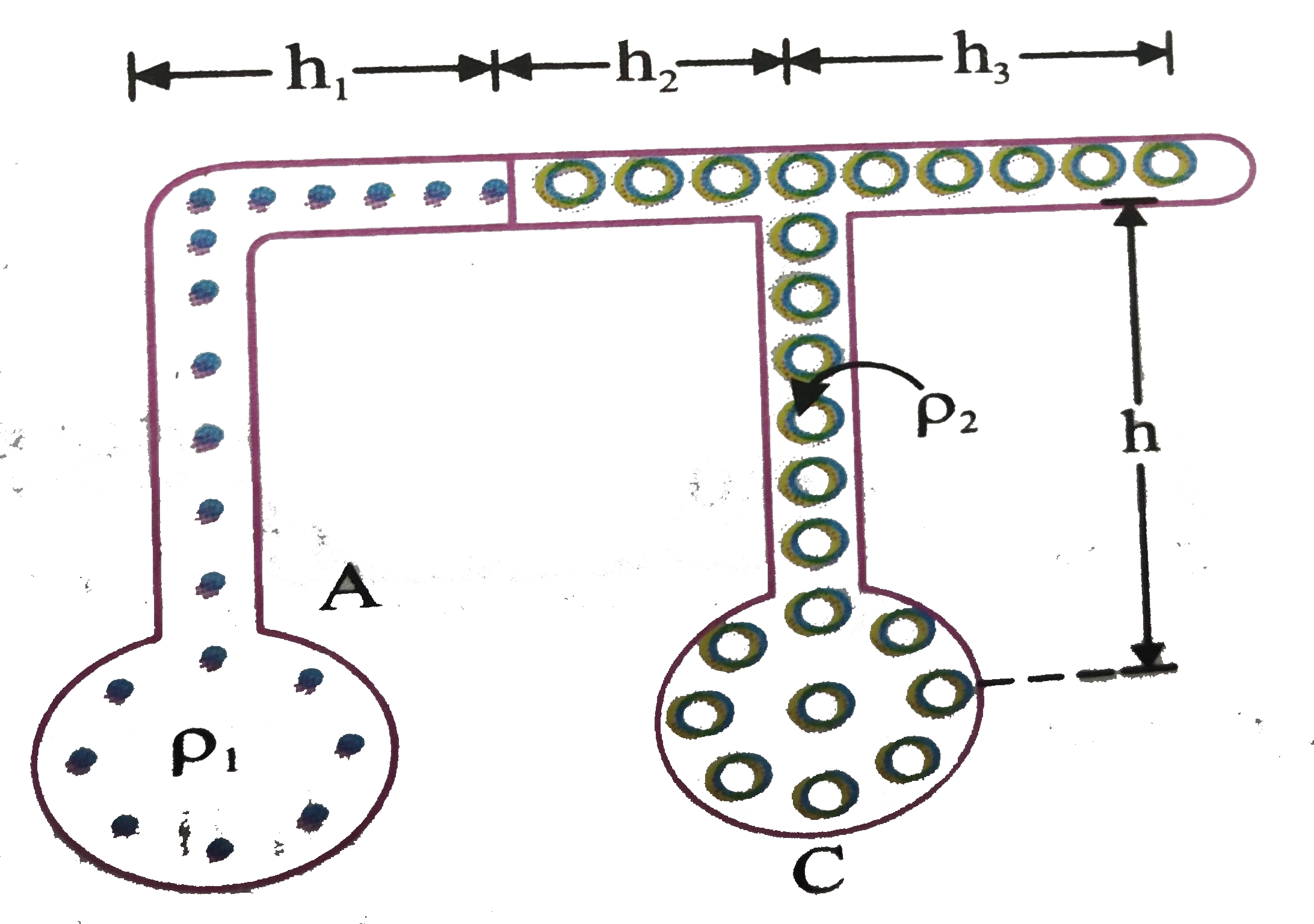Equal mass of three liquids are kept in three identical cuylindrical vessels A, B and C. the densities are ρA,ρB,ρC with ρA<ρB<ρC. The force on the base will be
maximum in vessel A
maximum in vessel B
maximum in vessel C
same in all the three vessels
The correct Answer is:D
Let m be mass of the liquid. Let hA,hB and hC be the heights of liquid level in three vessels. Then
m=ρAA×hA=ρBA×hB=ρC×A×hC
ρAhA=ρBhB=ρChC=mA
Pressure at the bottom is vessel A, pA=p0+ρAghA
similarly at B and CpB=p0+ρBghB
pC=p0+ρCghC
i.e., pA=pB=PC
so, the same force will be exerted by the liquid in all the three vessels.
Topper's Solved these Questions
- FLUID MECHANICSBook:CENGAGE PHYSICSChapter:FLUID MECHANICSExercise:Multipe Correct
Explore 15 Videos
- FLUID MECHANICSBook:CENGAGE PHYSICSChapter:FLUID MECHANICSExercise:Assertion-Reasoning
Explore 8 Videos
- FLUID MECHANICSBook:CENGAGE PHYSICSChapter:FLUID MECHANICSExercise:Subjective
Explore 25 Videos
- DIMENSIONS & MEASUREMENTBook:CENGAGE PHYSICSChapter:DIMENSIONS & MEASUREMENTExercise:Integer
Explore 2 Videos
- GRAVITATIONBook:CENGAGE PHYSICSChapter:GRAVITATIONExercise:INTEGER_TYPE
Explore 1 Video
Similar Questions
Equal mass of three liquids are kept in three identical cuylindricasl vessels A, B and C. the densities are ρA,ρB,ρCwithρA<ρB<ρC. The force on the base will be
View SolutionA thin triangular glass tube containing immiscible liquids A, B, C of densities ρ,2ρ,3ρ is at rest in vertical plane. Find x.

View Solution
Knowledge Check
Three liquids of equal masses are taken in three identical cubical vessels A,B and C. Their densities are ρA,ρB and ρC respectively but ρA<ρB<ρC. The force exerted by the liquid on the base of the cubical vessel is
Amaximum in vessel CBminimum in vessel CCthe same in all the vesselsDmaximum in vessel AThree liquids of equal masses are taken in three identical cubical vessels A, B and C. Their densities are ρA,ρB and ρC respectively but ρA<ρB<ρC. The force exerted by the liquid on the base of the cubical vessel is
Amaximum in vessel CBminimum in vessel CCthe same in all the vesselsDmaximum in vessel AThree identical vessels are filled with equal masses of three different liquids A,B and C(ρA>ρB>ρC). The pressure at the base will be
AEqual in all vesselsBMaximum in vessel ACMaximum in vessel BDMaximum in vessel C
Three identical vessels are filled to the same height with three different liquids A, B and C(ρA>ρB>ρC). The pressure at the base will be
View SolutionA solid uniform ball having volume V and density ρ floats at the interface of two unmixable liquids as shown in the figure. The densities of the upper and the lower liquids are ρ1 and ρ2 respectively, such that ρ1<ρ<ρ2 . What fraction of the volume of the ball will be in the lower liquid ?

View SolutionThree different liquids are filled in a U-tube as shown in figure. Their densities are ρ1,ρ2 and ρ3 respectively. From the figure we may conclude that

View Solution
The difference in pressures in bulbs A and C having fluids of densities ρ1 and ρ2 when tube B is horizontal will be
View SolutionTwo circular discs A and B have equal masses and uniform thickness but have densities ρ1 and ρ2 such that ρ1>ρ2 . Their moments of inertia is
View Solution

